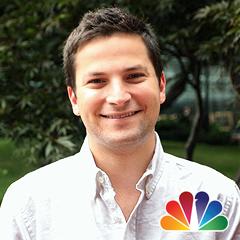Breaking News Emails
Netflix and Hulu recently butted heads with rival documentaries about the ill-fated Fyre Festival. But there appears to be far less competition between two new projects about the serial killer Ted Bundy.
That’s because they’re both directed by the same person.
“Admittedly, it’s a little strange that I did both,” said Joe Berlinger, the Oscar-nominated filmmaker behind Netflix’s docuseries “Conversations with a Killer: The Ted Bundy Tapes” and the docudrama “Extremely Wicked, Shockingly Evil and Vile,” starring Zac Efron as a young Bundy.
“I’d like to say there was some grand master plan to be ‘the Bundy guy’ in 2019,” said Berlinger (HBO’s “Paradise Lost”), but the twin projects were developed separately.
That’s not to say the timing of the back-to-back debuts — Netflix’s series drops Thursday, the Efron-led film premieres at the Sundance Film Festival on Saturday — is entirely accidental. The releases are meant to coincide with the anniversary of Bundy’s Jan. 24, 1989 execution.
Berlinger, not to mention his co-producers and distributors, are surely hoping to capitalize on the public’s seemingly insatiable appetite for true-crime tales, a hunger that Netflix — the streaming service behind “Making a Murderer,” “Mindhunter” and other lurid fare — has been happy to feed.
The four-part “Conversations with a Killer,” largely structured around never-before-heard audio recordings, is designed to take viewers into Bundy’s depraved mind. Berlinger expects his audience will be surprised by the “clarity and lucidity” of his subject, who before his execution confessed to 30 homicides.
"Extremely Wicked," for its part, promises to treat Efron fans to a decidedly more sinister side of the former "High School Musical" frontman. The film chronicles Bundy's seemingly blissful romance with single mother Elizabeth "Liz" Kloepfer (Lily Collins) just before things get dark.

In both films, Berlinger got a chance to probe what he considers "one of the deepest, darkest, most primal fears we have — not the feeling that we could be murdered by a serial killer, but the feeling that the person next to us is ultimately unknowable."
Bundy’s paradox — homicidal sadist with a charming affect and intelligent air — left an indelible mark on Stephen Michaud, a veteran reporter whose many hours of recorded interviews with the killer are at the center of the Netflix series.
Michaud, who met with Bundy on multiple occasions in 1980 while the killer sat on Florida’s death row, said listening to him talk — usually in the third person — “required a kind of disassociation.”
“I was shocked, because I was naive. I didn’t know what a sociopath or a psychopath was, somebody who can talk about murder with complete dispassion and lack of remorse,” said Michaud, 70. “That really jolted me.”
After particularly stomach-churning conversations with Bundy, Michaud would “vomit all the way home,” finding himself “physically revolted” by his interlocutor's heinous crimes and emotionless braggadocio.
And yet Michaud could not let the physical toll of dealing with Bundy overwhelm his journalistic project, which ultimately evolved into the 1989 book “Ted Bundy: Conversations With a Killer,” in concert with his reporting partner, Hugh Aynesworth.
“I couldn’t say, ‘Oh, I can’t hear anymore,’ because I’m a journalist. I had to hear some more,” Michaud said.
